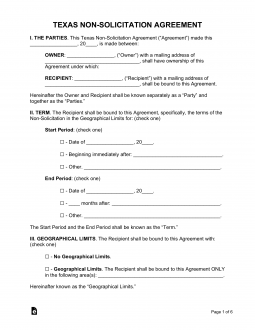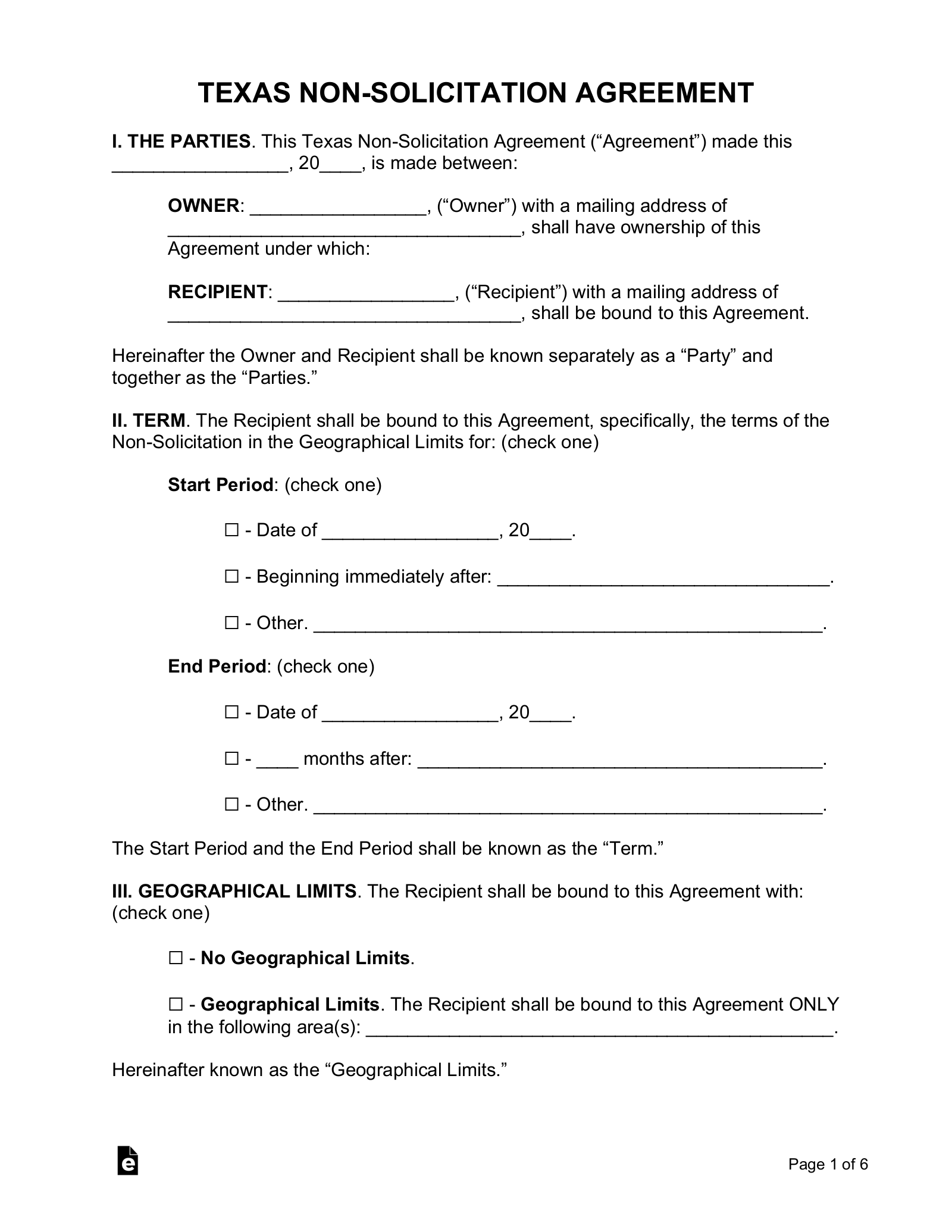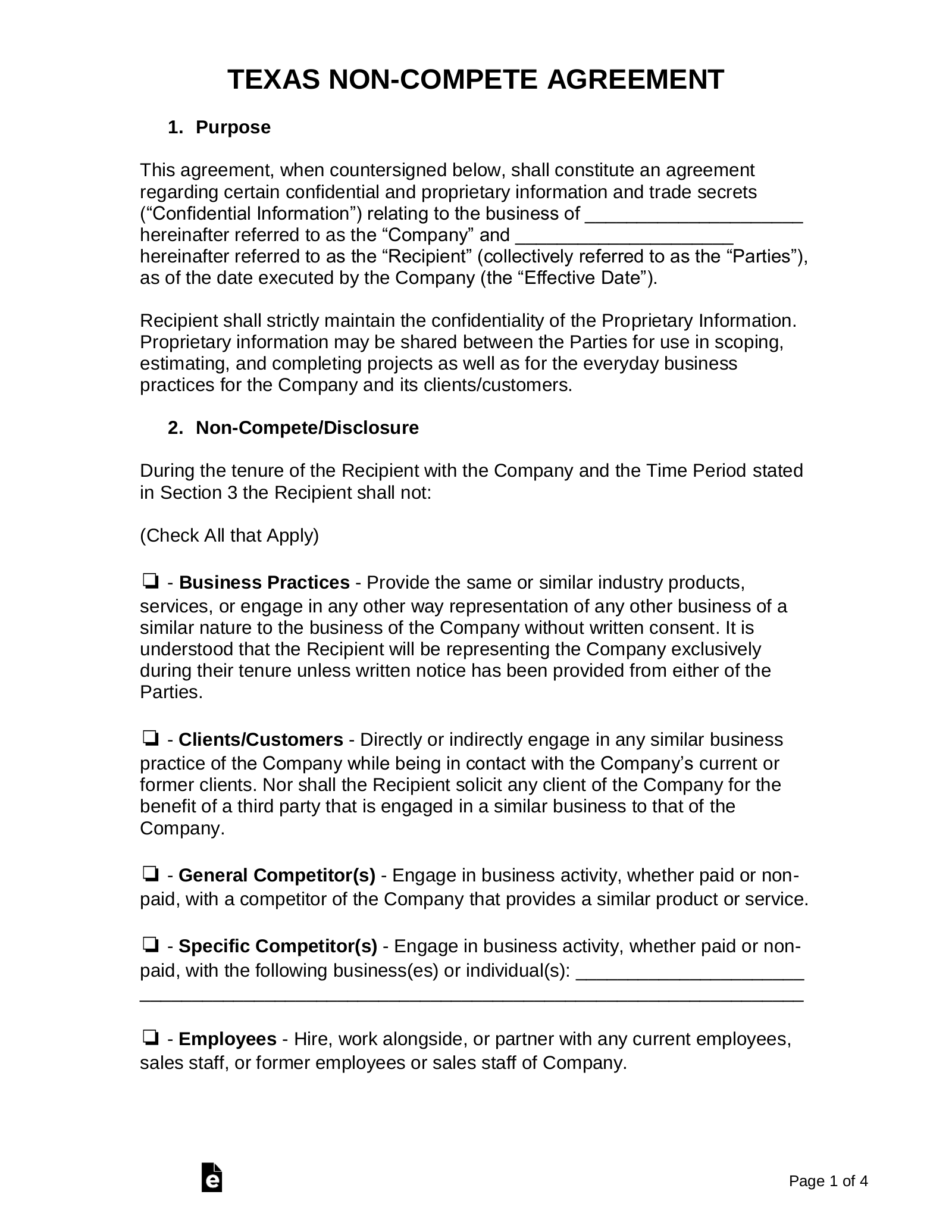Updated April 19, 2024
A Texas non-solicitation agreement is a contract between an employer and an employee that prevents the employee from using connections forged during their period of employment to solicit customers or business from the employer upon leaving the company. Similar to a non-compete or non-disclosure agreement, a non-solicitation agreement is typically signed during the onboarding process.
Is It Legally Enforceable in Texas?
Yes — provided that it contains limitations with regard to time, geographical area, and scope of activity to be restrained. Agreements must be considered reasonable.[1]
Time limits of up to two years are more readily enforced.
Under state law, physicians must not be denied access to former patients and their medical records.[2]
Table of Contents |
What Can a Non-Solicitation Agreement Prohibit?
In Texas, as long as the terms of the agreement are considered reasonable, it can prohibit a former employee from contacting, recruiting, or hiring the employer’s:
- Past or current clients and customers
- Past or current employees
- Independent contractors
- Suppliers, associates, etc.
What Should a Non-Solicitation Agreement Include?
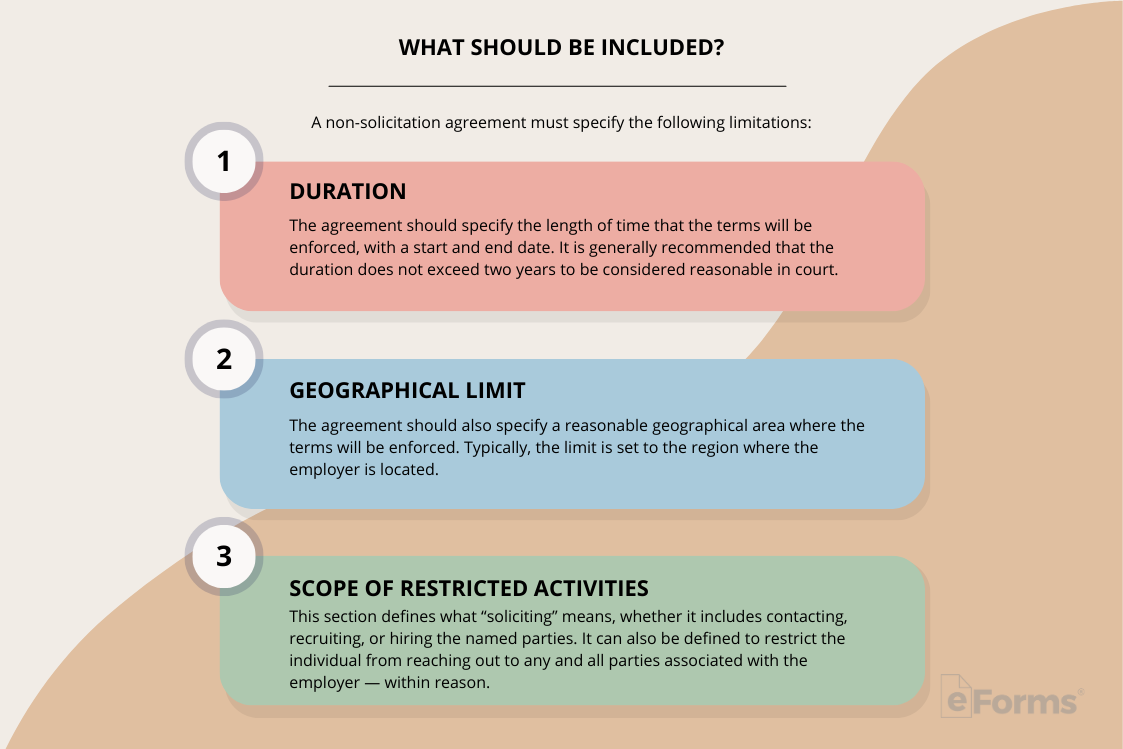
Under Texas case law, a non-solicitation agreement is likely to stand up in a court of law if it includes limitations on the following:
1. Duration
The agreement should specify the length of time that the terms will be enforced, with a start and end date. It is generally recommended that the duration does not exceed two years to be considered reasonable in court.
2. Geographical Limit
The agreement should also specify a reasonable geographical area where the terms will be enforced. Typically, the limit is set to the region where the employer is located.
3. Scope of Restricted Activities
This section defines what “soliciting” means, whether it includes contacting, recruiting, or hiring the named parties. It can also be defined to restrict the individual from reaching out to any and all parties associated with the employer — within reason.
Related Forms
Download: PDF, MS Word, OpenDocument
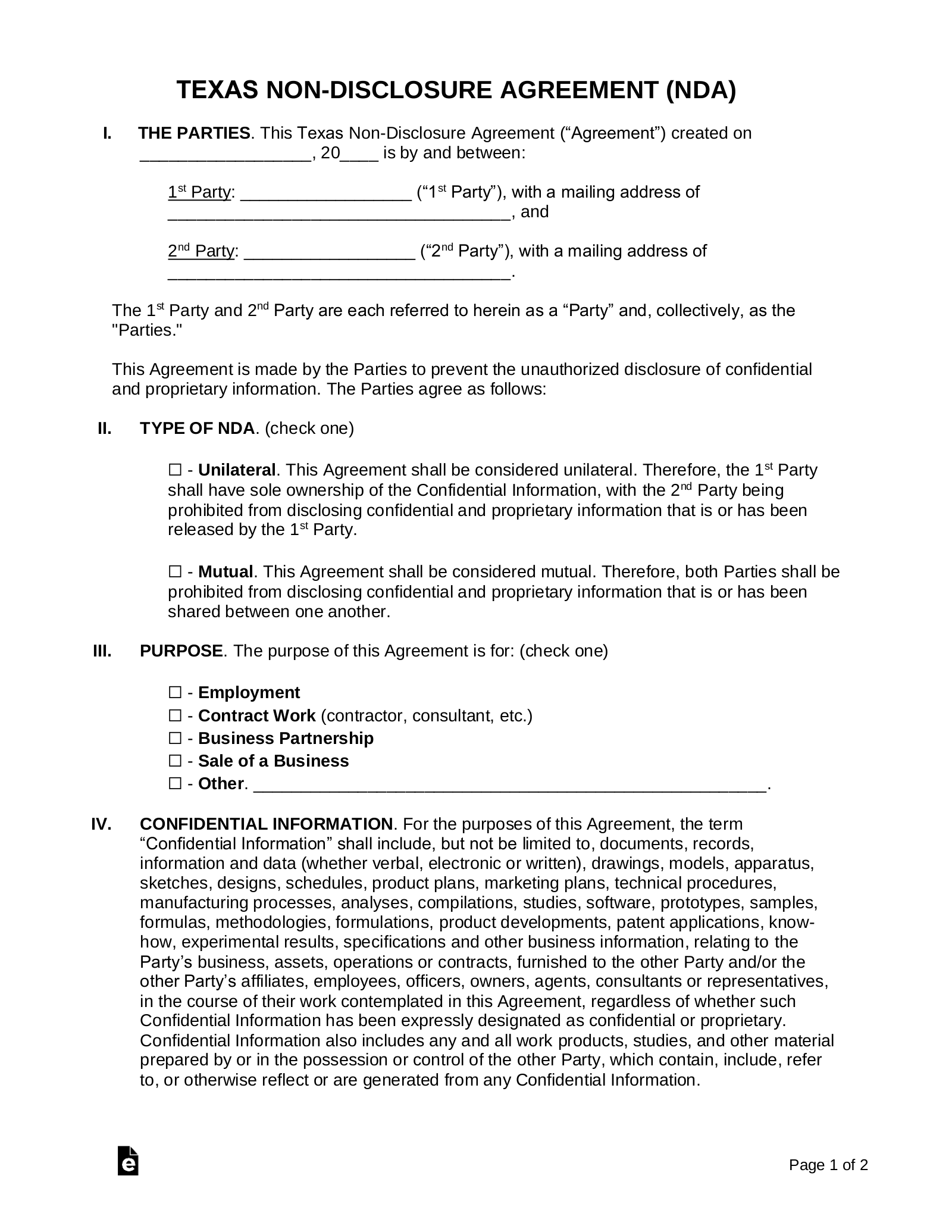 Texas Non-Disclosure Agreement
Texas Non-Disclosure Agreement
Download: PDF, MS Word, OpenDocument

